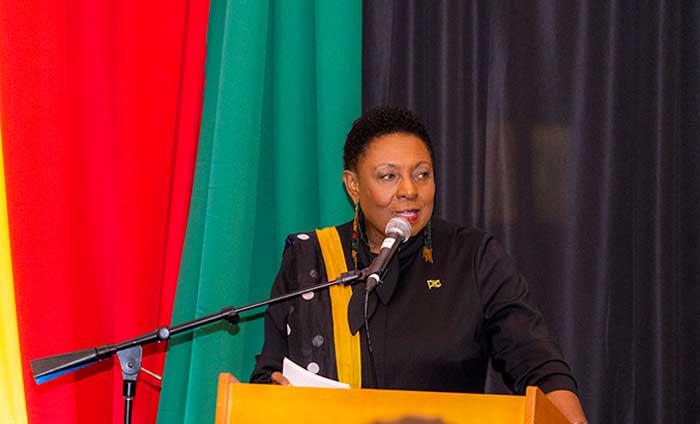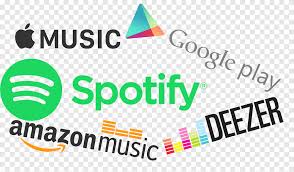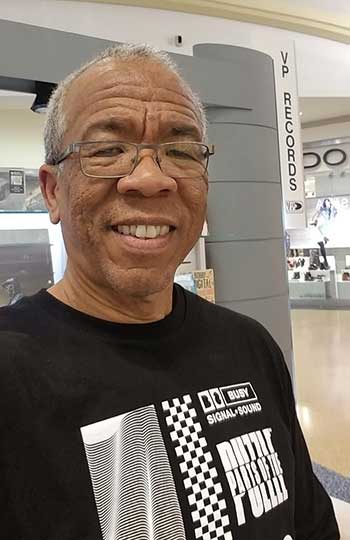JAMAICA | Streaming and the Jamaican Reggae music consumer

MONTEGO BAY, Jamaica May 16, 2021 - At the 13th session of the UNESCO Inter-governmental Committee for the Safeguarding of the Intangible Cultural Heritage in the Republic of Mauritius in 2018, Jamaica’s Reggae music was inscribed on the UNESCO Representative List of Intangible Cultural Heritage of Humanity.

“It shows the popularity of reggae music across the world and the captivating influence of the Jamaican art form,” Ms Grange said.
Prior to this, Reggae had over the years, become the liberation music of the oppressed by way of the lyrical renditions of Bob marley, The Wailers, Peter Tosh, Bunny Wailer, Toots and the Maytals, Jimmy Cliff, Burning Spear, John Holt, Dennis Brown and a host of Jamaican international musicians which now expanded to include Buju Banton, Ziggy and Damian Martley, Cronix, Koffee, Sean Paul and Shaggy among others.
The gradual phasing out of compact discs, CDs and the introduction of streaming platforms, has created a seismic shift in the way in which music is now being listened to, and has left Jamaican music consumers, particularly Jamaicans in the Diaspora out in left field, and somewhat disconnected from the new modalities that are dictating the ways in which the world is now listening to music.
For the most part, streaming has become the major way that music is now being internationally consumed, with quite a number of popular platforms established to stream your favourite at a monthly fee while the majority of Jamaican music consumers particularly in the diaspora. are still listening to CDs!
The dilemma is, it is getting more difficult to go into a Walmart department store or your favourite music outlet to grab a CD of that new Jamaican artiste you heard a couple of days ago.

In April last year, Apple Music launched in Jamaica, and less than a year later, on February 23, Spotify followed. Music fans in Jamaica now have the opportunity to stream music on some of the most popular digital platforms in the world.
With Spotify and Apple being among the largest streaming platforms available today, local reggae and dancehall artists now have the ability to reach millions of users who stream music on Spotify and Apple Music every month across the world and who were being hampered by region restrictions.
While Reggae remains ever-popular on platforms like YouTube, the new service will give added major weight to the activity on these services. With both of them now available in Jamaica, artistes will no doubt take advantage of the well-needed change and increase engagement with fans on these platforms.
Grammy award winning Jamaican artiste Orville “Shaggy “Burrell told an online town hall meeting hosted by Jamaica’s Ambassador to the United States last Thursday, that “Reggae/Dancehall now has less than 6% of the global market share,” which he lamented, “does not really give us a seat at the table.”
Shaggy, who was a special guest on the third in the series of “Lets Connect with Ambassador Marx,” noted that “as influential as Jamaican music is on the global stage, there is an overwhelming lack of support for the music from Jamaicans.”
He pointed out that many Jamaicans at home and across the diaspora do not support local musicians in the same way they support other international artistes.

He explained that while there was serious competition to Jamaican musicians coming out of California, USA, where there were Americans who grew up listening to Bob Marley Reggae were now listening to Americans playing reggae they were heavily streaming the music of these alternative reggae bands, oblivious to the current original music being made by Jamaican musicians.
And they are streaming, because that's their culture! It's not that they are taking away Jamaican music, they are streaming American made Jamaican music, “and they outnumber us both in Jamaica and in the diaspora,” Mr. Lue explained.
“Now, the white Reggae Bands and the California Reggae bands will tell you that their mentor and their hero is Bob Marley,” the VP music executive said. “In the end, they are listening to Bob Marley and their local California Reggae band,” Lue exclaimed.
The other problem Lue pointed out is that “Hip-Hop” poses severe challenges to Reggae and Dancehall as Hip Hop more often than not takes precedence over Reggae when it comes to airplay on US radio. He explained that “as Jamaicans we get squeezed because when an American artiste makes a song on a Jamaican rhythm, they call it hip-hop and they get radio play!”
“But,when a Jamaican artiste goes on the very same rhythm, and creates a song, they call it Reggae or Dancehall and it doesn’t get similar airplay on the radio like the American artiste’s Hip Hop tune.. Why? because the radio stations say they do not have a dancehall format!
Hence, Jamaican music does not get played, does not get listened to, and the traditional market share, made up of our first-generation Caribbean American listeners, gravitates to Hip Hop recorded on the Jamaican rhythm, and which is given more airplay than our indigenous Reggae.
Elias Leight, writing in RollingStone magazine in 2018, in an article entitled ”Why Isn’t Jamaican Dancehall Bigger in the U.S.?, revealed that “In the first week of May, the American music industry commenced a semi-annual tradition: singling out a lone piece of Jamaican music and sending it up the charts. “There’s one Jamaican record every two to three years,” explains the producer Jaxx (Kranium, Jada Kingdom).”
In 2018, he said the “lucky winner was “Walking Trophy,” a confidence-boosting single by Hoodcelebrityy, a Jamaican-born, New York City-based singer. By early July, two months after appearing on the mainstream R&B/Hip-Hop airplay chart, “Walking Trophy” was reaching an audience of around eight million listeners a week.”
He explained that “There’s one Jamaican record every two to three years:”
“The big record of 2017was Konshens [‘Bruk Off Yuh Back,’];
before that it was Kranium [‘Nobody Has to Know,’ 2015];
before that it was Gyptian [‘Hold Yuh,’ 2010];
before that it was Serani [‘No Games,’ 2009].”
The Rolling Stone writer said “Singles like these often become popular when the weather begins to warm in the Northeast U.S., but when fall approaches, American gatekeepers promptly abandon Jamaican music. “We’ve always been trying to figure that out: Why are we only subjected to the summertime?” asks Ricky Blaze, an artist-producer who crafted the beat for Gyptian’s “Hold Yuh.” “We make cool music all year long.”
“Maybe conditions are finally in place for Jamaican artists to break the de facto seasonal embargo. Streaming has helped multiple global genres of music achieve prominence; Thanks to huge YouTube numbers and beefed-up Spotify playlists, more Spanish-language songs than ever before are reaching the Hot 100, and within the last year and a half, K-Pop has also started to cross into the U.S. market. Jamaican music has been more historically influential than either reggaeton or K-Pop; could it be the next genre to break globally?” questions Leight.
According to the music website ‘Urbanislandz’, “Based on the way the music industry is streamlined with every stream across every platform counting for something, artists in Jamaica were at a grave disadvantage when local fans could not access what is virtually the world’s most accepted forms of streaming music.”
“For example, Nielsen Music gathers data on streaming activity across all platforms, and there is no doubt that numbers were severely lacking in the Caribbean, though music is such a prevalent part of the culture. This lent itself to most artists in Jamaica getting little to no acknowledgment by giants like Billboard and Rolling Stone,” Urbanislandz explained.
The publication quotes Julian Jones-Griffith, artiste manager and CEO of Pop Style as saying that “Our streaming numbers have been disproportionately impacted by the absence of Apple Music and other platforms like Spotify in the region and in Africa, where our music is very popular,” she said.
She went on to say that “Up to this very moment, our music is way more popular on YouTube than Apple Music or Spotify in comparison to other genres. Hopefully, parity can be reached now that Apple Music is available. It should help the streaming services take us a little more seriously,” Jones-Griffith said.
VP Records Director Richard Lue is convinced that the Jamaican Diaspora can make a difference in the way Jamaican music is perceived on the global stage, by changing their old CD listening habits and adopting streaming platforms as the preferred way to listen to their favourite artistes.
-30-
